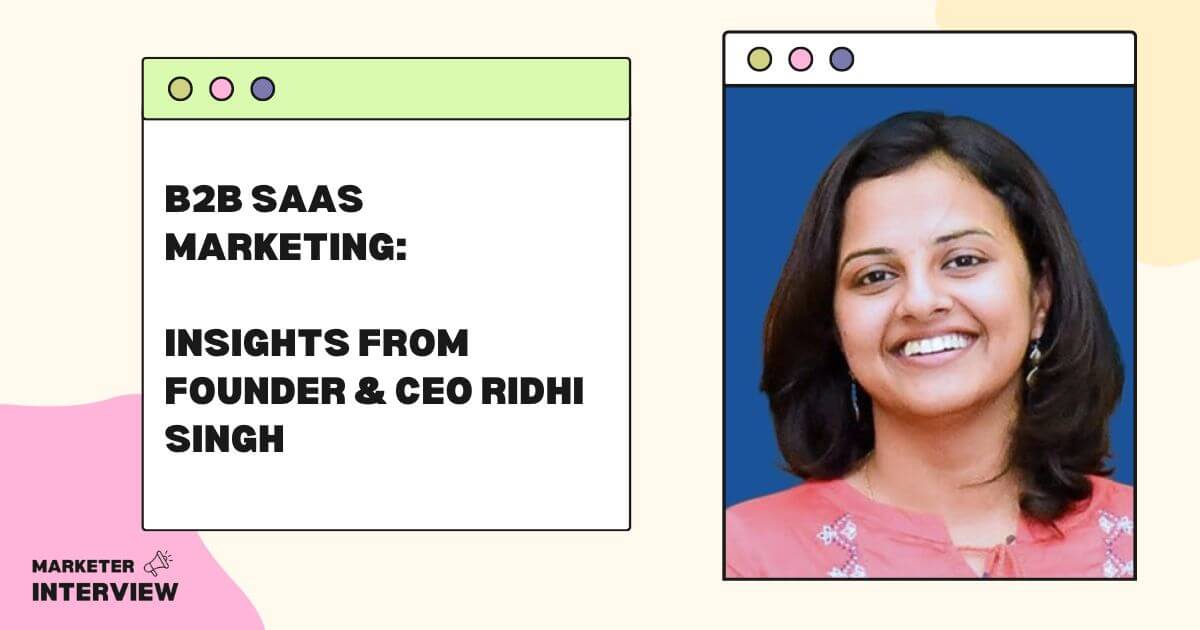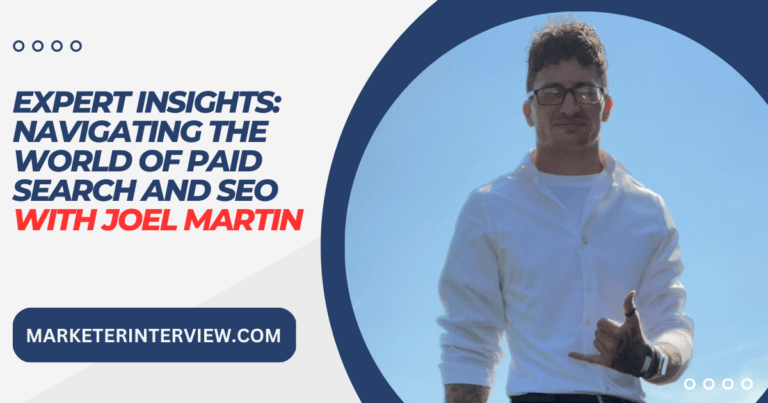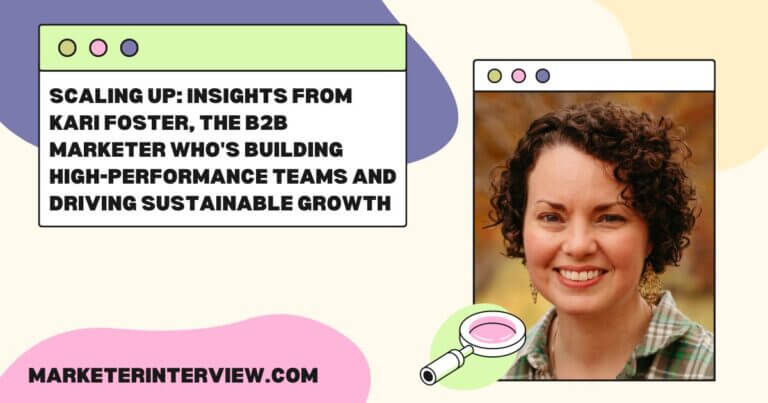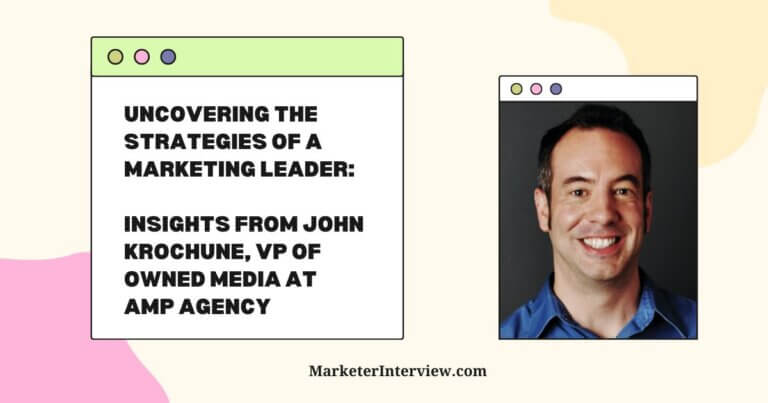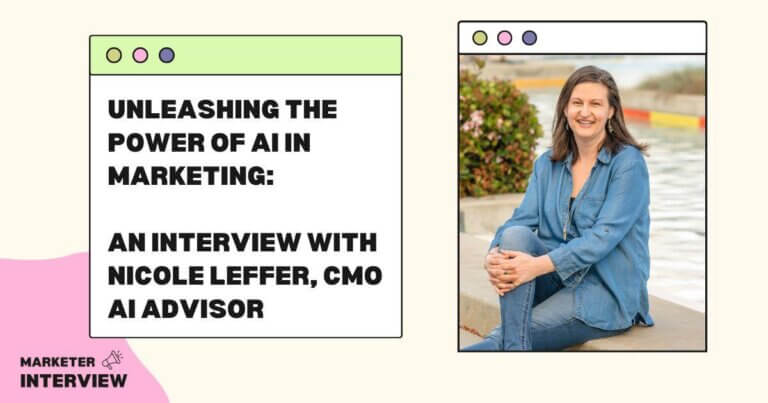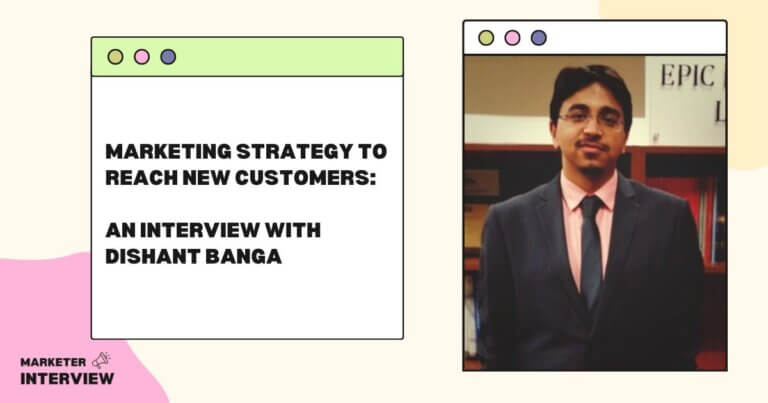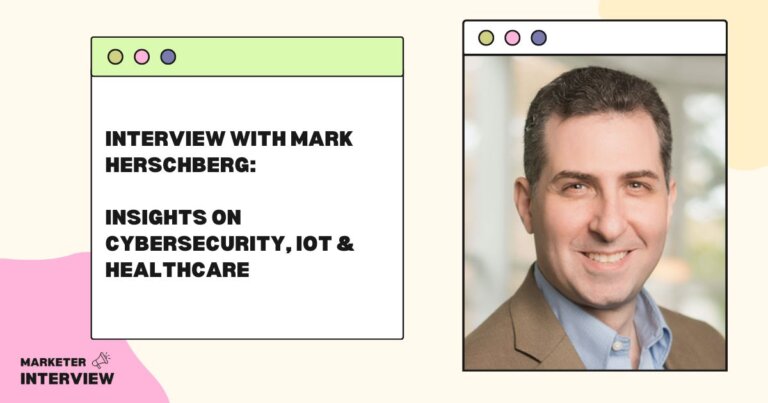B2B SaaS Marketing: Insights from Founder & CEO Ridhi Singh
Today, we have Ridhi Singh, Founder & CEO at 91Ninjas, a B2B SaaS marketing firm based in Singapore.
Ridhi has over a decade of experience in marketing and specializes in B2B SaaS marketing.
In this interview, we will discuss how B2B SaaS marketing is transforming, and Ridhi will share her expertise and insights on the subject.
Let’s dive in!
Contents
- 1 How did you get started in marketing, and specialize in B2B SaaS marketing?
- 2 How has B2B SaaS marketing evolved over the years?
- 3 What are some common misconceptions about B2B SaaS marketing?
- 4 How do you measure the success of a B2B SaaS marketing campaign?
- 5 How do you keep up with the latest marketing trends and best practices?
- 6 How do you create a marketing strategy for a B2B SaaS startup?
- 7 How do you work with clients to understand their brand voice?
- 8 Can you recommend some tools and software essential for your job as a B2B SaaS marketer?
- 9 What advice would you give someone interested in pursuing a B2B SaaS marketing career?
How did you get started in marketing, and specialize in B2B SaaS marketing?
I left my full-time job at a bank to join a startup in 2012. It was an e-commerce marketplace for handmade and ethnic lifestyle goods.
We scaled up the business to 50+ orders per day with 100+ artisans on board before shutting down. The same team then founded Connecto – a marketing automation platform, and that’s how I got introduced to the world of SaaS marketing.
At Connecto, I worked closely with many B2B startups. I saw a pattern: B2B SaaS businesses worldwide faced unique challenges when it came to marketing, and there was a noticeable shortage of good B2B marketers.
Most founders were still figuring out how to get their marketing right and needed help. However, there was a clear opportunity to upskill and help companies navigate the complexities of B2B marketing, scale their businesses, and ultimately create lasting, positive change across industries. And so I decided to specialize in B2B SaaS marketing.
How has B2B SaaS marketing evolved over the years?
B2B SaaS marketing has evolved significantly over the years, driven by technological advancements, changing buyer behaviors, and increased competition.
In the past decade, SaaS businesses have moved from traditional to digital marketing, which is more data-driven and offers better insights than offline marketing.
Today, digital marketing channels like social media, content marketing, email, ABM, and search engine optimization have become crucial components of a comprehensive marketing strategy.
Soon, I expect to see these fundamental developments/changes in the B2B SaaS marketing space:
- Increased focus on buying experience: As buyers become more aware/informed, they need a B2C buying experience. Given this change in buyer behavior, businesses will work towards creating a seamless buying experience, and marketing will play a key role here, along with product and customer success teams.
- Artificial intelligence (AI) and automation: AI-powered tools will play an increasingly prominent role in marketing, enabling more personalized experiences, predictive analytics, and streamlined marketing operations.
- More granular personalization and segmentation: Marketing is increasingly becoming more contextual. SaaS marketers are moving beyond standard profile-based personalization to more behavior/action-based personalization to tailor their messaging and offerings.
- Sales and marketing integration: To achieve revenue goals & deliver a great customer experience, we will see leaders investing more in Sales and Marketing alignment.
- Brand marketing will be fun and engaging: I see a new generation of SaaS companies approaching brand marketing as fun and engaging. They are bold, have a POV, and don’t shy away from creatively sharing their narrative. I expect more B2B businesses to adopt meme marketing, create Tik Tok videos, and engage with their audience through Instagram Reels. Of course, there will be exceptions, like businesses selling to banks where they want to gain trust.
- Focus on high-quality, unique content: In the age of AI, where content generation at scale would be possible for any business at a fraction of their current cost, businesses will try to differentiate with super high-quality content. For example, businesses should invest in podcasts, interviews, and content enriched with quotes/insights from experts.
- The rise of micro-influencers: Collaborations with industry influencers are a theme that’s picking up pretty fast to expand reach, enhance credibility, and generate high-quality leads.
- Constant innovation and creativity will be rewarded: In a world with too much content being created, marketers who can think of creative ways to market their products will stand out. Creativity will be rewarded.
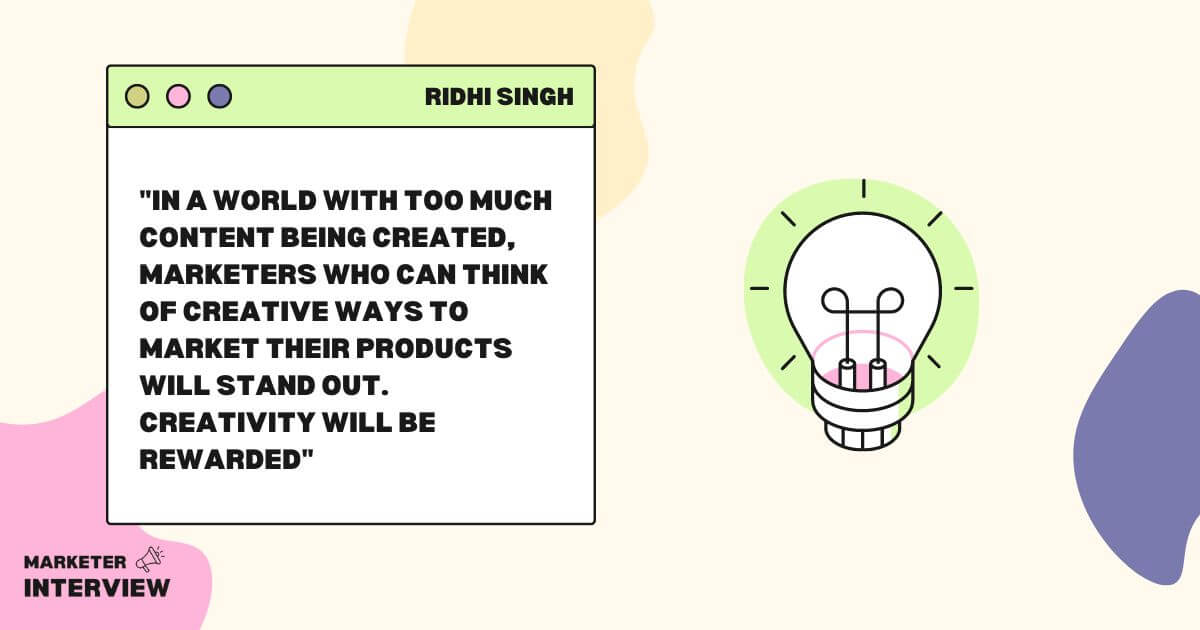
What are some common misconceptions about B2B SaaS marketing?
There are many, and I am sharing a few common ones that I have heard:
Misconception 1: B2B marketing has to be serious because you are selling to businesses.
Here’s what I say: You are selling to people in those businesses, and there is no way you can get the attention of those people with dull, serious content.
Misconception 2: Social media is not effective for B2B marketing.
Here’s what I say: Not at all. B2B buyers are very active on social media, especially LinkedIn. That’s the place where deals are happening.
Many SaaS businesses have cracked inbound deal flow through a well-crafted LinkedIn strategy.
Misconception 3: Content marketing doesn’t drive business results
Here’s what I say: If done right, content marketing drives results. You need to have the right strategy, execution, and metrics to track
Misconception 4: PPC will get us instant leads
Here’s what I say: Unlike B2C, where customers buy impulsively, B2B sales take time.
While in some cases, you can capture existing demand through PPC in the short term, you need time to build a predictable pipeline in the long term.
B2B SaaS marketing often involves longer sales cycles and nurturing relationships with prospects over time.
How do you measure the success of a B2B SaaS marketing campaign?
That depends on the marketing campaign’s goal and my marketing mix.
If I am running a campaign for lead generation through PPC, I would track metrics like:
- Impressions
- Click Through Rates
- Leads
- MQL
- SQL
- Revenue generated
- Cost per lead
- Cost per MQL
- Cost per SQL
- CAC (Customer acquisition cost)
- CAC/LTV
On the other hand, if I am launching a brand initiative like Podcast series, blogs, etc., or doing SEO, metrics would vary accordingly.
How do you keep up with the latest marketing trends and best practices?
Here’s how I keep myself updated:
1/ Official resources from Google, Bing, Facebook, and other platforms:
There are regular updates from Google and other platforms that we must know about, and we subscribe to resources from all these platforms.
2/ Industry blogs/publications:
Regularly reading reputable marketing blogs and publications helps me stay current with the latest trends, insights, and best practices.
Some of my go-to sources include Foundation Labs, Moz, SparkToro, and Search Engine Journal.
3/ Communities:
This is where you will find most excellent conversations and knowledge-sharing happening. I am a part of many marketing communities and founder communities.
4/ Industry leaders and subject matter experts on social media:
LinkedIn is my go-to resource for learning actionable tips. You just need to follow the right folks.
I like content from Amanda Natividad, Ross Simmonds, Kevin Indig, Steve Toth, Jake Ward, Bram Van der Hallen, and many others.
5/ Podcasts & Newsletters:
I like Nathan Latka’s podcast, the SaaStr podcast, and more. I refer to Stacked Marketer, Foundation Lab, Amanda Natividad, Demand Curve, and more for the Newsletter.
How do you create a marketing strategy for a B2B SaaS startup?
A lot goes into creating a marketing strategy for a SaaS business. But the starting point is always getting answers to these:
Who are you selling to:
Know who your ICP is & what your personas look like. Which is your target segment – mid-market or enterprises?
Deep dive into your persona’s challenges, current way of doing business, understand which platforms they spend their time on, what kind of content they consume, etc.
What do you stand for?
What is the brand’s POV?: To have a good marketing strategy, you must get the brand story right. This lays the foundation of your marketing communication and is critical to your success.
Why will people choose the brand over competitors?:
Identify differentiators, know your strengths, and market them well
Which are my most important marketing channels?
Pick your channels based on where your prospects are spending time. For example, if your prospects spend a considerable time on LinkedIn, it will be a crucial channel for you.
At the very core, any marketing strategy has three core components: target audience, communication, and marketing channel.
Once you have identified these, you can build channels specific strategies quickly.
How do you work with clients to understand their brand voice?
For brands who have this figured out and documented, we go through their brand document and follow the guidelines. We also review their existing content to understand their tone, language, style, and messaging.
For brands who don’t have it in place, we work with them to develop a brand voice guideline document to make things easier.
Can you recommend some tools and software essential for your job as a B2B SaaS marketer?
- Content & SEO: Scalenut, Ahref, SEO Minion, Screamingfrog, Grammarly, Riverside, Buzzsprout
- Social: Publer, Buffer
- Marketing automation: Hubspot, Mailmodo, Active Campaign
- Analytics & Reporting: Google Analytics, Google Tag Manager, Clevertap, Google Data Studio
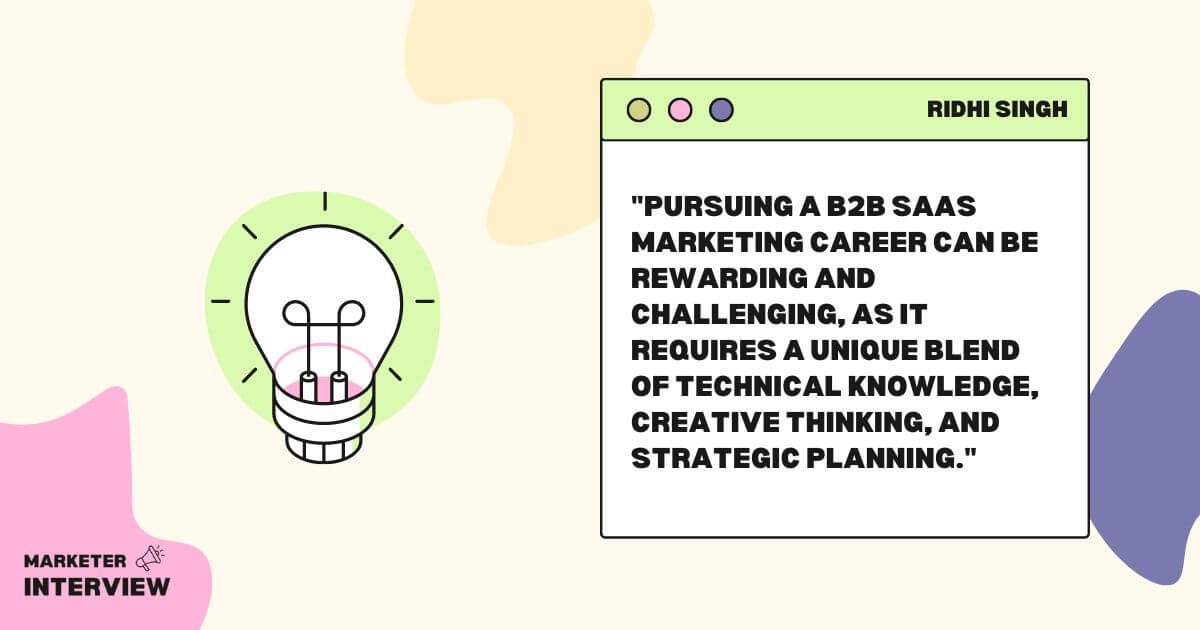
What advice would you give someone interested in pursuing a B2B SaaS marketing career?
Pursuing a B2B SaaS marketing career can be rewarding and challenging, as it requires a unique blend of technical knowledge, creative thinking, and strategic planning.
Here are some pieces of advice for someone interested in this field:
- B2B SaaS marketing is vast and has many areas of specialization like PPC, SEO, content, ABM, email marketing, marketing operations, analytics, etc. Your specialization depends on your interest and core strengths.
- Develop a strong foundation by doing courses in the specialization. Then get into the habit of self-learning. This self-learning habit is critical to your success.
- Get hands-on experience. Execution is critical, so don’t shy away from it. You will learn a lot by doing things and developing the frameworks that will help you in strategy roles later.
- Adopt a growth mindset and be open to taking feedback. As marketing evolves, there will always be something you need to learn. Being open to that idea; it will help you listen to others and improve.
- Work on your soft skills. While technical know-how is good, you will need good tech skills to make it work with leaders and team members.
- Build your brand and portfolio. It will help you stand out from the competition.
- Work hard and trust the process 🙂
